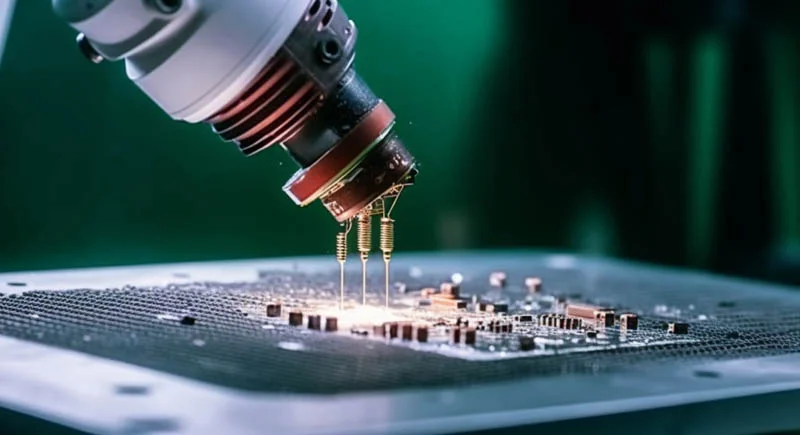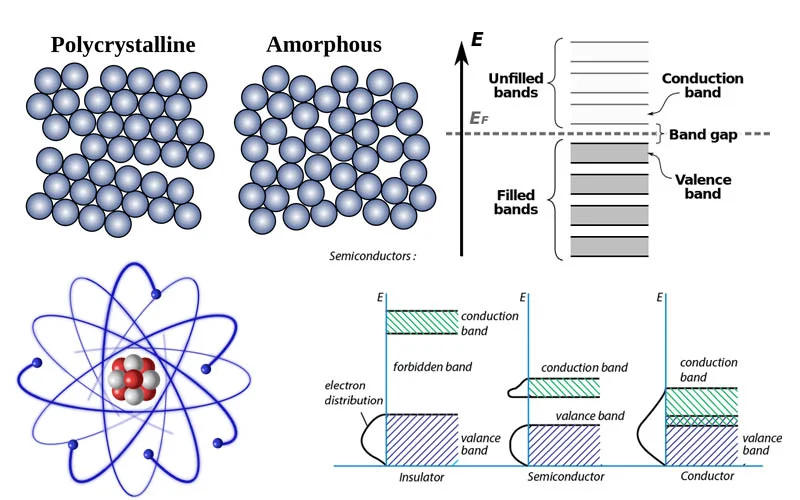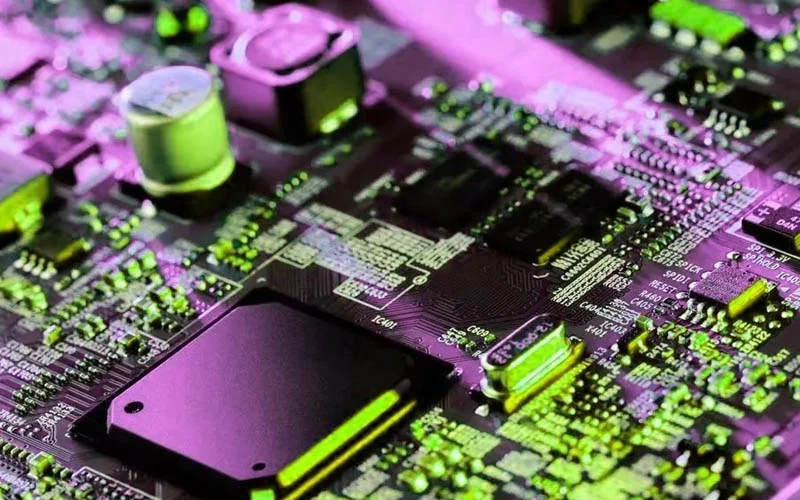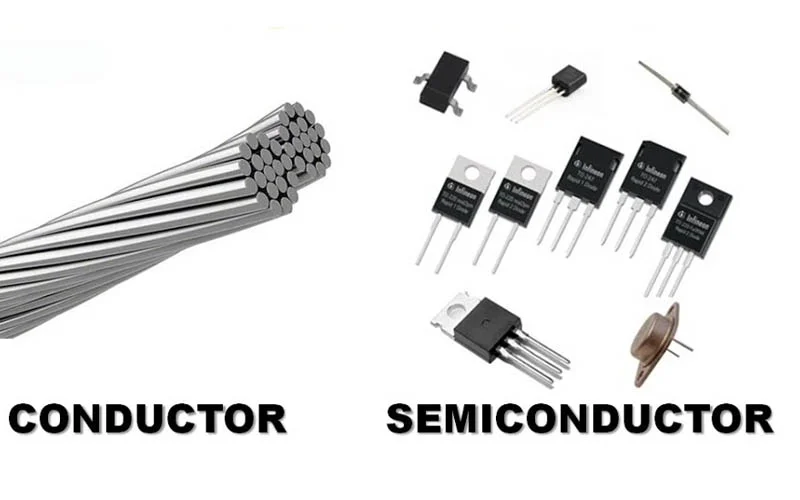Semiconductors are materials with electrical conductivity between conductors and insulators. why are semiconductors used in electronics? This unique property makes them ideal for controlling electrical currents.
Semiconductor Technical Specifications Advantages

Material Composition
Silicon: The most commonly used semiconductor material, valued for its abundance and favorable electrical properties.
Germanium: Used in high-speed electronics and fiber optic communication.
Gallium Arsenide: Offers superior electron mobility and is used in high-frequency applications like mobile phones and satellite communications.

Doping Process
N-type Doping: Adding impurities such as phosphorus to create free electrons.
P-type Doping: Adding impurities like boron to create “holes” or positive charge carriers.
Semiconductor Devices
Diodes: Allow current to flow in one direction, used in rectifiers and signal modulators.
Transistors: Used as amplifiers and switches in circuits.
Integrated Circuits: Complex assemblies of multiple semiconductor devices on a single chip, forming the core of microprocessors and memory chips.
Why Are Semiconductors Used in Electronics?

The reasons are as follows:
Controllable conductivity:
Semiconductors have intermediate electrical conductivity levels between conductors (e.g., metals) and insulators. The conductivity can be influenced by factors like temperature and the application of external voltages. This controllable conductivity allows the precise management of electronic signals in devices.
Switching capabilities:
Semiconductors can act as switches, turning electronic circuits on or off. By applying a voltage to a semiconductor device such as a transistor, the flow of current can be regulated, enabling digital logic operations and data processing.
Miniaturization:
Semiconductors are remarkably small in size. This attribute makes them ideal for the miniaturization of electronic components and the development of compact devices such as smartphones, laptops, and microchips. The ability to integrate large numbers of transistors on a single semiconductor chip (IC) has led to significant advancements in computing power.
Energy efficiency:
Semiconductors offer high energy efficiency compared to other materials. By using semiconductor-based devices, energy consumption can be reduced, contributing to longer battery life and energy savings in various applications.
Optoelectronics:
Semiconductors are critical components in optoelectronic devices that work with light, such as LEDs (Light Emitting Diodes) and solar cells. Semiconductors can emit light, convert light into electrical signals, or act as light detectors, enabling various applications in lighting, display technology, and renewable energy.
Signal amplification:
Semiconductors can amplify weak electronic signals, allowing them to be detected and processed. This feature is vital in telecommunications, where signals need to be boosted for long-distance transmission without loss of information.
Why are semiconductors used in electronics instead of conductors?

Here is a table comparing the suitability of semiconductors and conductors for electronics:
| Aspect | Semiconductors | Conductors |
|---|---|---|
| Control of Current | Can regulate and control current flow | Cannot control or manipulate currents |
| On/Off Switching | Enable efficient on/off switching for digital logic | Not suitable for precise switching |
| Miniaturization | Can be manufactured in microscopic sizes | Typically bulkier and not as scalable |
| Energy Efficiency | Generally offer better energy efficiency | It may have higher power consumption |
| Application Range | Widely used in various electronic components/devices | Primarily used for current carrying |
| Thermal Management | Can handle heat better with proper design | It May conduct heat and cause overheating |
In summary, while conductors are excellent for carrying current, semiconductors are more suitable for electronics due to their ability to control current, enable precise switching, support miniaturization, and offer better energy efficiency. Semiconductors are the foundation of modern electronics and are vital in creating advanced devices and integrated circuits.
Where are semiconductors used in electronics?

Consumer Electronics
Smartphones and Tablets:
Semiconductors enable the processing power, memory, and connectivity features.
Laptops and Desktops:
Central and graphics processing units (CPUs and GPUs) rely on semiconductor technology.
Wearable Devices:
Smartwatches and fitness trackers use semiconductors for their compact and efficient performance.
Industrial Applications
Automation and Robotics:
Semiconductor sensors and controllers are essential for industrial automation.
Energy Management:
Power semiconductors are used in solar panels and smart grids.
Manufacturing Equipment:
Advanced machinery relies on semiconductor chips for precision and efficiency.
Medical Devices
Diagnostic Equipment:
MRI and CT scanners use semiconductors for image processing.
Wearable Health Monitors:
Devices like glucose monitors and heart rate sensors depend on semiconductor technology.
Implantable Devices:
Pacemakers and hearing aids utilize semiconductors for reliable performance.
Automotive Industry
Engine Control Units (ECUs):
Manage engine performance and efficiency.
Advanced Driver Assistance Systems (ADAS):
Enable features like automatic braking and lane-keeping.
Infotainment Systems:
Provide navigation, entertainment, and connectivity.
FAQs
What are semiconductors and why are they important in electronics?
Semiconductors are materials with electrical conductivity between that of a conductor and an insulator. They are crucial in electronics because they can be manipulated to control the flow of electric current, making them essential for building electronic devices and circuits.
How do semiconductors enable the functioning of electronic devices?
Semiconductors have a unique property called the bandgap, which allows them to selectively allow or block the flow of electrons. By doping semiconductors with impurities, such as adding phosphorus or boron, their conductivity can be artificially increased or decreased. This process gives rise to the creation of diodes, transistors, and other electronic components.
What are diodes and why are they important?
Diodes are semiconductor devices that allow current to flow in one direction but block it in the opposite direction. They play a crucial role in converting alternating current (AC) to direct current (DC), which is necessary for most electronic devices to function.
How do semiconductors contribute to the miniaturization of electronic devices?
Semiconductors enable the creation of integrated circuits (ICs) or microchips, which are the heart of modern electronics. These ICs integrate thousands or millions of transistors and other components onto a single chip, allowing for the miniaturization of electronic devices while increasing their complex functionality.
What role do semiconductors play in the digital revolution?
Semiconductors have been at the forefront of the digital revolution, enabling the development of computers, smartphones, tablets, and other digital devices. Their ability to switch and amplify signals allows for faster and more efficient processing of information, essential for modern technology and communication systems.
Conclusion
Semiconductors are the cornerstone of modern electronics, providing the essential functionality needed for a wide range of applications. Their unique properties, such as the ability to control electrical currents and perform complex calculations, make them indispensable in today’s technology-driven world.
As technology continues to evolve, semiconductors will remain at the forefront of innovation. Ongoing research and development promise new materials, devices, and applications that will shape the future of electronics and beyond.